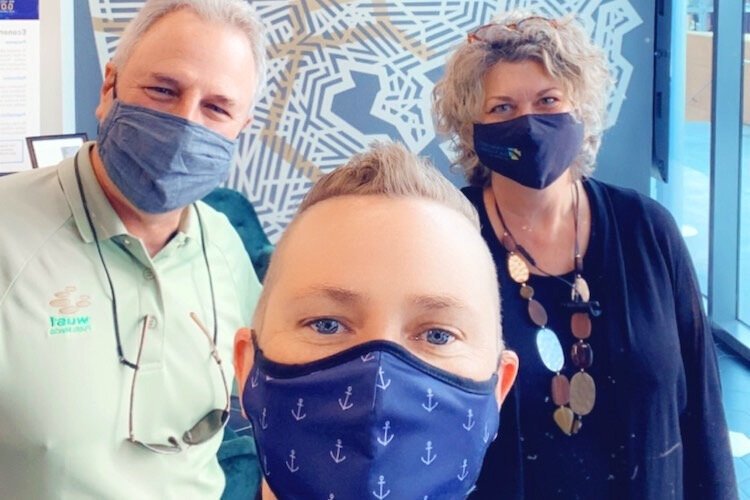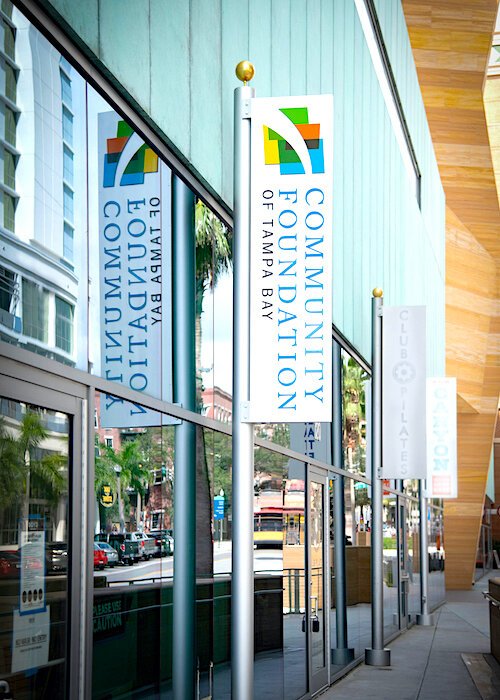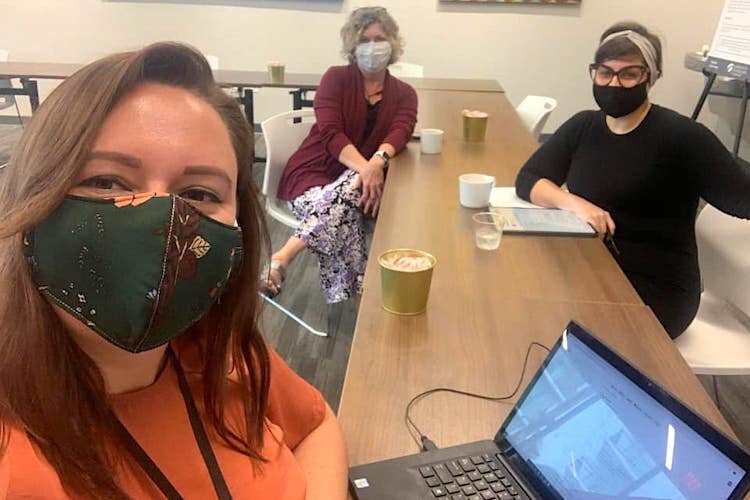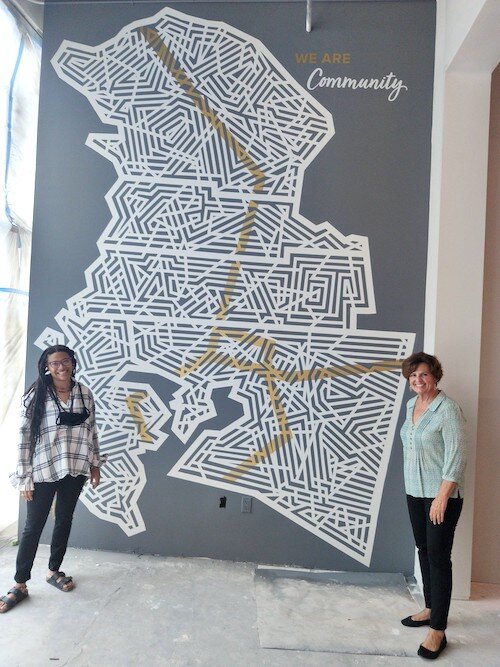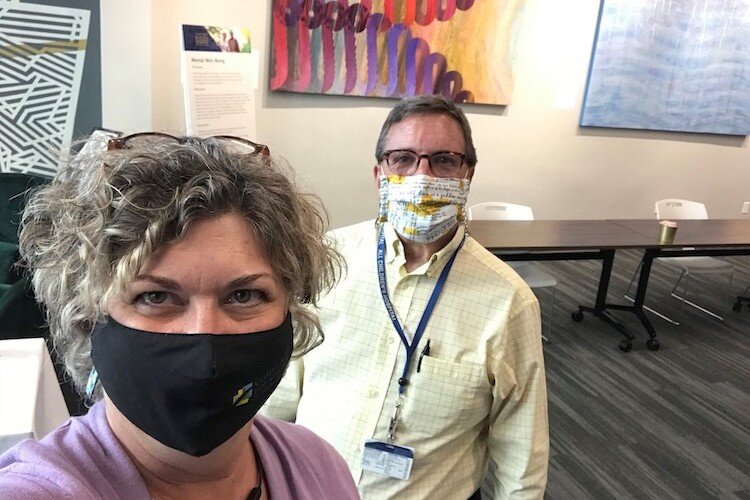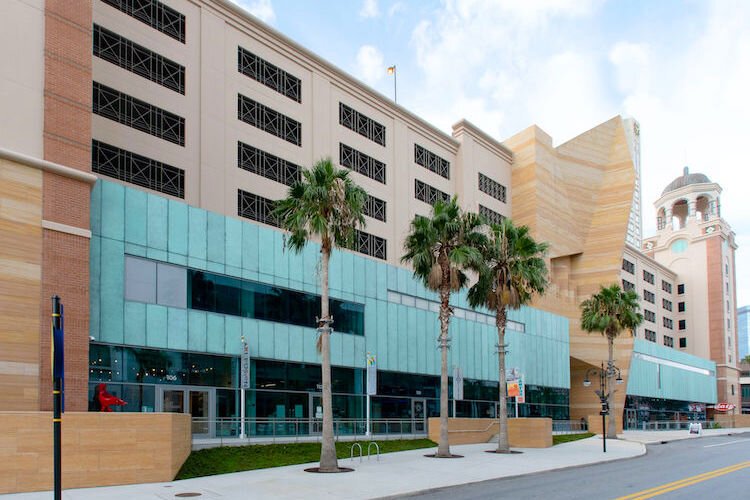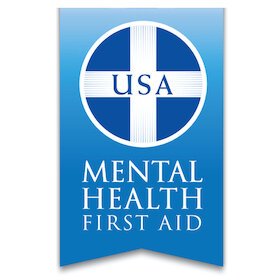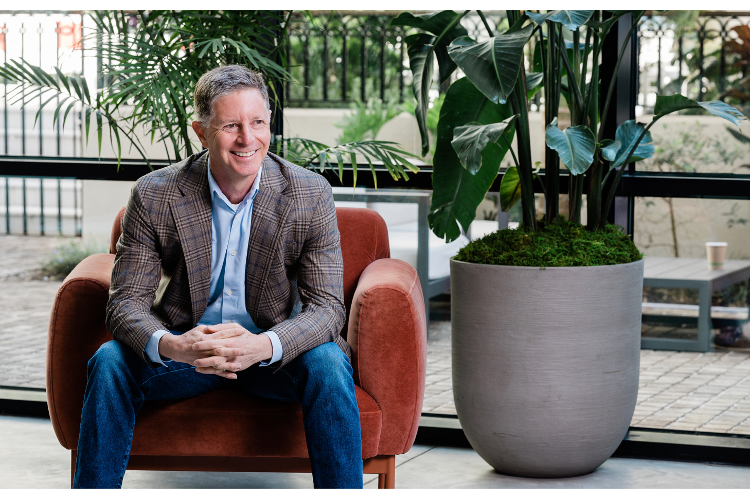New philanthropic initiative offers Mental Health First Aid in Tampa Bay
A new program launched this fall by the Community Foundation of Tampa Bay is designed to elevate awareness, attention, and care for people suffering from depression and other mental illnesses and challenges.
It’s no secret to anyone that 2020 has been marked by unique social, economic, and political challenges in Florida and around the globe.
People are dealing daily with the threat of COVID-19, changes in their live, work, and play spaces, racial and social justice issues surrounding police and protests, and an election cycle that has divided the nation in ways no one could have fathomed just a few years ago.
While the toll on the economy and neighborhoods rocked by riots may be obvious to most, a sometimes invisible enemy lurking just beneath the surface in some individual households and workplaces is one of mental stress and illness that not everyone recognizes, appreciates, or knows how to address.
That’s the reality and motivation behind a new program launched this fall by the Community Foundation of Tampa Bay to elevate awareness, attention, and care for people suffering from depression and other mental illnesses and challenges.
Community Foundation President and CEO Marlene Spalten and VP for Community Connections Wilma Norton say the organization shifted back to the “basic needs” of those served once the pandemic hit, including a new Mental Health First Aid initiative.
Founded in 1990, the Community Foundation aims to connect donors, nonprofits, community and business leaders, professional advisors, volunteers, and residents to ensure philanthropic giving achieves maximum positive impact in the Tampa Bay region. Since its inception, the Community Foundation has awarded nearly $250 million in grants to nonprofit organizations.
From its main office in Tampa and a new office in St. Petersburg, the Community Foundation of Tampa Bay serves Hillsborough, Pinellas, Pasco, Hernando, and Citrus counties.
Spalten, in her eighth year leading the Foundation, says the Mental Health First Aid initiative was derived from the organization’s top five priorities for grantmaking. Mental health is one of the five.
“When the pandemic hit, as everyone did, we shifted our attention to the basic needs people have,” she says. “But we’ve come back around to mental health in a bigger way because we believe it will be a major cause of concern long after this pandemic has quieted down; we’ve intensified our interest in that.”
Basically, Spalten says, the new “Mental Health First Aid” initiative teaches people in “key roles” how to identify, understand, and respond to the mental health challenges of family, friends, and neighbors.
Mental Health First Aid is a nationally certified training course designed to enable those working in public roles to identify, understand, and respond to signs of addictions and mental illness. The Community Foundation has a goal to train 5,000 people over the next three years in partnership with St. Petersburg College and Love IV Lawrence, a Dimmitt Family fund that supports organizations involved with mental health.
Widespread problems
According to national data, one in five American adults is experiencing a mental health challenge with social isolation, loneliness, worry, and stress related to the COVID-19 pandemic. Two in five Americans report struggling with mental health or substance abuse in June 2020, according to the Centers for Disease Control.
Norton describes Mental Health First Aid as “CPR for mental health.”
“But that’s only two in five that have reported that they have mental health issues. We truly believe that it is much more widespread than that and that is why this is so important to us,” she adds.
To offset cost for Mental Health First Aid training, the Community Foundation is covering the cost of the course for those who work at nonprofit organizations, education institutions, faith communities, and other public service organizations across the Tampa Bay region.
“I think the bigger goal is to elevate the conversation about mental health issues and to try to eliminate the stigma while helping everybody know that they can reach out for help, provide help, and seek help; it shouldn’t be something you hesitate to do,” says Spalten.
Communitywide efforts
The Community Foundation’s initiative joins the United Way Suncoast and several nonprofit organizations that similarly have ramped up efforts to address mental health challenges during the pandemic.
Emery Ivery, Chief Impact Officer at United Way Suncoast for the past 14 years, says COVID hit during the agency’s fundraising campaign causing a shift in priorities to additionally help about 50 Tampa Bay Area nonprofits they serve to garner more resources.
“Because of COVID, there are some after-school programs that had to reduce the number of kids due to distancing and had to incur costs to make sure there is proper sanitation and cleaning,” says Ivery. “There was a lot of work that we did to negotiate and work with agencies so we could understand their special circumstances and still get programs out to serve people in the community. For funding, since the onset of the coronavirus, the United Way provided grants but allowed adjustments and flexibility in how agencies utilized the money and services.”
As of October, the United Way Suncoast has distributed over $1.5 million in COVID crisis funding to agencies serving more than 113,000 families. The total amount distributed through the United Way annual agency investment process as of July 1 was about $5.9 million: about $4.4 million to Hillsborough-Pinellas counties; $849,000 for Sarasota; $534,000 for Manatee; and $48,000 for DeSoto, Ivery says.
“We can expand to the ability to help people who are struggling and lost their jobs, help case management services,” he adds. “We provided grants so that organizations like the YMCA and Boys & Girls Clubs could continue to support kids and we could help first responders; that’s been a big focus.”
Another primary focus for the United Way, adds Ivery, is the eviction crisis brought about due to COVID. The United Way has been working with other funding partners through the Tampa Bay Resiliency Fund to get money to communities in need. That fund was launched to help critical organizations providing assistance to vulnerable local residents being affected by the COVID-19 public health crisis. The fund is a collaboration of the Pinellas Community Foundation, Allegany Franciscan Ministries, Foundation for a Healthy St. Petersburg, and United Way Suncoast, with nearly $1 million of funding assistance made available to nonprofit organizations and governmental agencies.
“The big focus is working with partners regarding the eviction crisis. We want to make sure that all of the grants, especially with the Resiliency Fund, we want to make sure across the board that these grants get into neighborhoods with a high number of people of color — Wimauma, south St. Pete. That has been an important focus across the board for us.”
Ivery adds that over the next three months, a United Way Suncoast priority is to help families stabilize their economic security. Florida’s moratorium on evictions and foreclosures during the coronavirus pandemic ended at midnight, Oct. 1; the Federal moratorium ends Dec. 31.
“Right now, numbers are picking up. So, we could be faced with 7,000 to 8,000 families who are going to be evicted. It’s an eviction/utility payment crisis. We want to get as many resources as possible so people can stay in their homes,” he says.
Emotional Support Line
In October, officials with the Pinellas Community Foundation, Directions for Living, Boys & Girls Clubs of the Suncoast, and The Well for Life announced funding for the COVID-19 Mental Health Crisis.
According to the Pinellas Community Foundation, more than 1,400 residents sought help from a local COVID-19 Emotional Support Line, with a disproportionate number of deaths and illnesses in low-income and communities of color.
The Foundation, a separate entity from the Community Foundation of Tampa Bay, announced $2.6 million in grant money was awarded to nine Pinellas County nonprofits to add or enhance programs addressing the mental health effects of COVID-19.
These program enhancements will impact 5,500 individuals, including first responders, youth and families, citizens and “anyone experiencing high levels of anxiety and depression,” according to a Foundation news release.
For more information, visit:
- Mental Health First Aid
- Community Foundation of Tampa Bay
- United Way Suncoast
- Pinellas Community Foundation
- Love IV Lawrence
- St. Petersburg College

